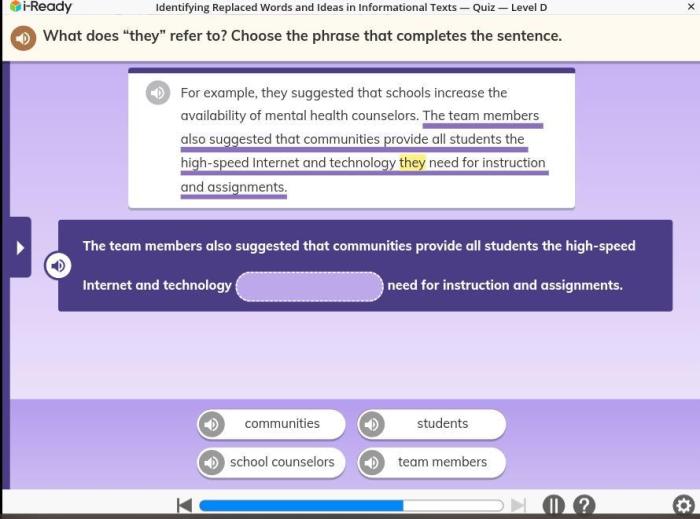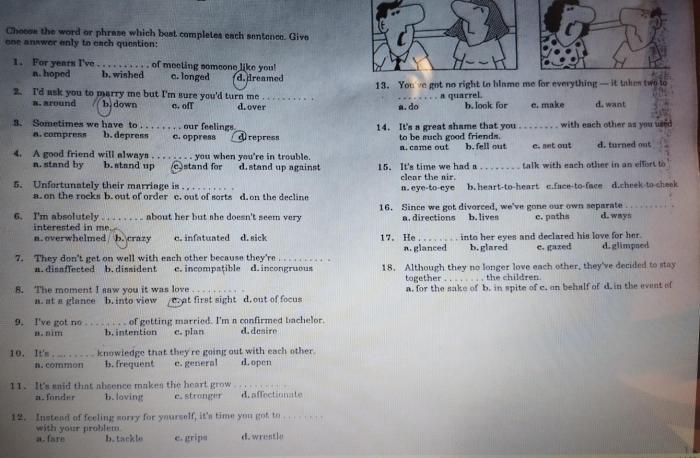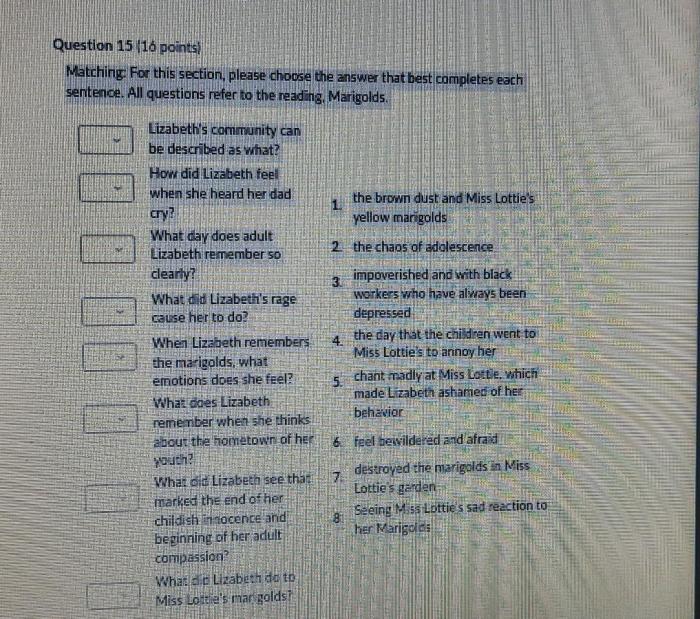Choose the preposition that best completes each sentence. – Choose the Preposition that Best Completes Each Sentence: A Guide to Prepositional Precision sets the stage for this enthralling narrative, offering readers a glimpse into a story that is rich in detail and brimming with originality from the outset. Embark on a journey through the intricate world of prepositions, where every word holds the power to transform the meaning of a sentence, and precision is paramount.
In this comprehensive guide, we delve into the fascinating realm of prepositions, exploring their multifaceted roles and uncovering the secrets to using them with confidence and accuracy. Join us as we navigate the complexities of prepositional usage, unraveling the nuances that distinguish one preposition from another and empowering you to make informed choices that elevate your writing to new heights.
Prepositions: Their Importance and Usage

Prepositions are words that show the relationship between a noun or pronoun and another word in a sentence. They can indicate location, direction, time, or other relationships. Using the correct preposition is essential for clear and effective communication.
Prepositions are often small words, but they play a big role in the meaning of a sentence. For example, the preposition “on” can be used to indicate location (“The book is on the table”), direction (“He walked on the sidewalk”), or time (“The meeting is on Friday”).
Identifying Prepositions
There are many common prepositions, including:
- above
- across
- after
- among
- around
- at
- before
- behind
- below
- beside
- between
- by
- during
- for
- from
- in
- into
- near
- of
- off
- on
- over
- past
- since
- through
- to
- toward
- under
- until
- up
- upon
- with
To identify a preposition in a sentence, look for a word that shows the relationship between a noun or pronoun and another word. The preposition will typically be followed by a noun phrase.
Choosing the Correct Preposition
The correct preposition to use in a sentence depends on the meaning you want to convey. For example, the preposition “on” is used to indicate location when something is resting on a surface, while the preposition “in” is used to indicate location when something is enclosed by something else.
Here are some examples of sentences using different prepositions:
- The book is onthe table.
- The car is parked inthe garage.
- The meeting is at2:00 PM.
- He walked towardthe house.
- She is sitting besideme.
Here is a table of common preposition pairs and their meanings:
| Preposition Pair | Meaning |
|---|---|
| on/in | Location |
| at/in | Time |
| toward/to | Direction |
| beside/next to | Position |
| with/by | Instrumentality |
Exercises and Practice
To practice choosing the correct preposition, complete the following exercises:
- Fill in the blank with the correct preposition:
- The book is ____ the table.
- The car is parked ____ the garage.
- The meeting is ____ 2:00 PM.
- He walked ____ the house.
- She is sitting ____ me.
- Choose the correct preposition from the options provided:
- The book is (on/in) the table.
- The car is parked (in/at) the garage.
- The meeting is (at/in) 2:00 PM.
- He walked (toward/to) the house.
- She is sitting (beside/next to) me.
Additional Resources, Choose the preposition that best completes each sentence.
Glossary of Prepositions and Their Meanings
- above: higher than
- across: from one side to the other side of
- after: following in time or order
- among: in or into the midst of
- around: on all sides of
- at: in or on
- before: in front of in time or place
- behind: at the back of
- below: lower than
- beside: next to
- between: in the space separating
- by: near
- during: throughout the time of
- for: in order to get or achieve
- from: starting at or moving away from
- in: inside of
- into: to the inside of
- near: close to
- of: belonging to or relating to
- off: away from
- on: resting on or attached to
- over: above or across
- past: beyond in time or space
- since: from a time in the past until now
- through: from one side to the other side of
- to: in the direction of
- toward: in the direction of
- under: below or beneath
- until: up to a certain time
- up: to or at a higher place
- upon: on or over
- with: in the company of
FAQ: Choose The Preposition That Best Completes Each Sentence.
What are prepositions?
Prepositions are words that establish relationships between nouns or pronouns and other words in a sentence. They indicate location, direction, time, or other connections.
Why is it important to use the correct preposition?
Using the correct preposition ensures clarity and precision in communication. The wrong preposition can alter the meaning of a sentence or make it grammatically incorrect.
How can I identify prepositions in a sentence?
Prepositions are typically short words that come before nouns or pronouns and indicate their relationship to other words in the sentence.
What are some common preposition pairs?
Common preposition pairs include: on/off, in/out, over/under, at/to, by/with.

